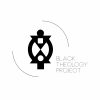By Angelique Walker-Smith,
Women’s empowerment is a critical element in the work of ending hunger and poverty in the United States and around the world. The #MeToo movement demonstrates the power of women’s collective voices. While this movement has focused on the legal and moral accountability of systems, powers, and persons that perpetrate sexual violence in this season, there are stories of women throughout the Bible crying out me too! God has always listened to the cries of women and has empowered them.
Genesis 1:27 states that women are made in the image of God. Church-fostered #MeToo movements like #SilenceIsNotSpiritual remind us of this.
An example of such cries and petitions by women in the Bible is found in Genesis 16 and 21, where Hagar, a slave woman from Egypt, served Abraham and Sarah. Once she had carried out the couple’s demand that she be a surrogate mother for their them, Hagar was cast out. Although Hagar petitioned Abraham and Sarah for mercy, she was denied. She and her son were removed from the household to die in the desert. It was in the desert, on her way to Shur, that Hagar pleaded her case before God. God heard her cries of hunger and misery and protected her. The lives of Hagar and her son, Ishmael, were both spared.
Hagar is just one of the African women in the Bible who was disempowered by those with privilege and who suffered from community rejection. Zipporah is another example. Unlike her husband, Moses, who knew the privilege of both his Egyptian royal heritage and Hebrew identity, Zipporah was an Ethiopian woman from Midian (Numbers 12). Still, Zipporah and Moses stayed together and pled the case for the Israelites—many of whom were women with children who had suffered under Egyptian slavery.
Israelite women had petitioned God to protect the bodies of women and their children from the slaughter of the Egyptian government. The actions of faith and courage by Zipporah and Moses saved them (Exodus 1:17-21). Later, Zipporah’s father, Jethro, advised Moses about ways to share power among the people. This resulted in new models of leadership, empowerment, and accountability in leading the Israelites.
Women like these are featured in the “In Times Like These … A Pan-African Christian Devotional for Public Policy Engagement.” Rev. Waltrina Middleton identifies women as bearers of change. Bishop Jefferson-Snorton probes the story of Hagar more deeply and proposes a biblical perspective of women who lead with grace and resilience.
Nicole Powell, African Methodist Episcopal Zion missionary supervisor of the Western District, speaks about the wisdom and faith of Pan-African women. Ms. Nila Curry, seminarian at Wesley Theological Seminary and former Bread for the World intern, honors Pan-African women as individuals called to prophetic gifts.
Read these wonderful devotionals. Be inspired by these women’s reflections and stories as you raise your voice to advocate for those affected by hunger and poverty.
Angelique Walker-Smith is senior associate for Pan-African and Orthodox Church Engagement at Bread for the World.
God has always listened to the cries of women and has empowered them.



Facebook Comments